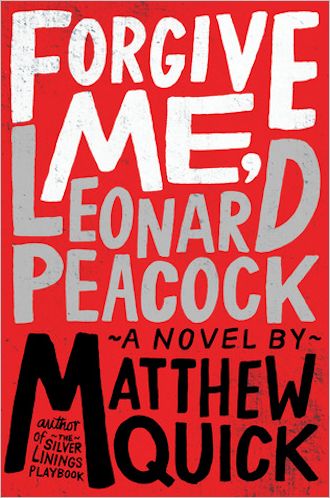 “Teenage gunmen may once have seemed a chilling aberration, but have become, hauntingly, as much a part of the American risk landscape as joy riding and misadventure at prom. Books like Quick’s are necessary, if only because novels, at their best, do what horrific headlines cannot: they reintroduce human subjectivity into large-scale national disaster. It’s one thing, after all, to write a novel from the point of view of a shooting victim, but something else to trace the mind-set of the perpetrator. When the book is intended for teenagers, the moral responsibilities of the project become steeper still.
“Teenage gunmen may once have seemed a chilling aberration, but have become, hauntingly, as much a part of the American risk landscape as joy riding and misadventure at prom. Books like Quick’s are necessary, if only because novels, at their best, do what horrific headlines cannot: they reintroduce human subjectivity into large-scale national disaster. It’s one thing, after all, to write a novel from the point of view of a shooting victim, but something else to trace the mind-set of the perpetrator. When the book is intended for teenagers, the moral responsibilities of the project become steeper still.
“It is not always entirely clear that Forgive Me, Leonard Peacock has the stylistic brawn to bear its heavy load. For one thing, Quick’s narrator seems awfully jocose for a guy who’s homicidally depressed. We recognize some element of disconnected humor in the chilling work of the Columbine shooters. But would someone with a gun and a blind eye to human beauty and invention really quote admiringly from “=’Hamlet’ — he identifies with the protagonist — and offer prattling commentary on his own text in a lot of running footnotes? Would he crack jokes and make puns? Forgive Me, Leonard Peacock is supposed to have profoundly real stakes, but its creative style is fast and loose and whimsical — so far from naturalism that it feels, at times, like a particularly wanton dream.
“The key to broaching fraught subjects is precision of voice and imaginative control; the risk, in airing matters like teenage shootings for young audiences, is making the histrionics of violence look fun.”
Review’s Review
Heller rightfully expresses a worry that the sociopathy present in the novel borders on adolescent prurience. This is the novel’s “heavy load.”
- Read the full @nathanheller review . . .
Readings
Share book reviews and ratings with DV,
and even join a book club on Goodreads.

















